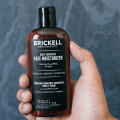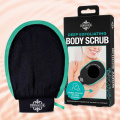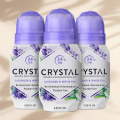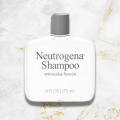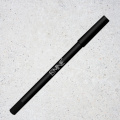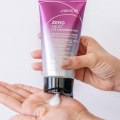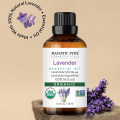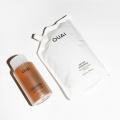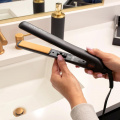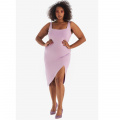The lowdown on retinoids vs retinol vs retinyl palmitate
Retinol is one of the best-known skincare ingredients on the market. The version of retinoids, retinol is derived from vitamin A and is primarily used to treat mature-looking skin concerns as well as acne.
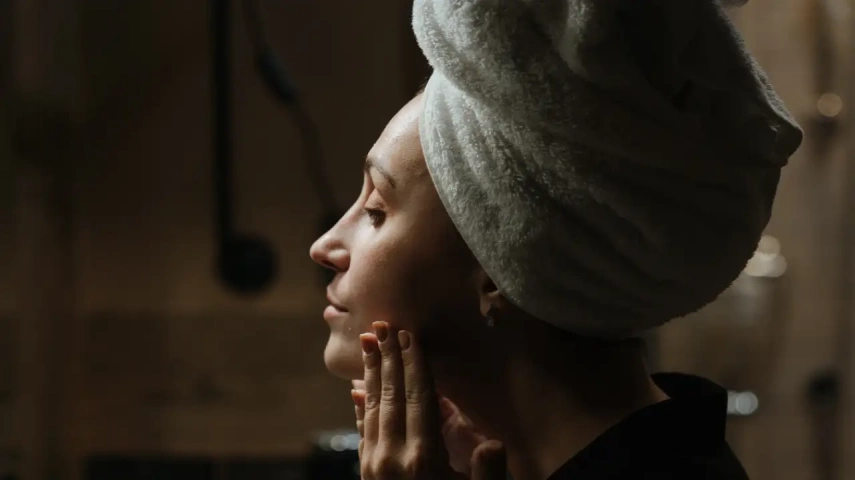
Many individuals are perplexed when it comes to retinol and retinoids, and for good reason. These two anti-aging substances aren't completely dissimilar. Retinol is a form of retinoid. Allow us to introduce you to retinyl palmitate, retinol's milder cousin. Confused? We'll explain. They're all vitamin A derivatives with similar benefits, but they're not the same. There are also significant differences between them, particularly in terms of how well your skin can handle each ingredient—an important consideration given that retinoids are infamous for their vexing side effects.
However, retinoid usually refers to stronger prescription medications, whereas retinol usually refers to lesser over-the-counter (OTC) preparations. If you have sensitive skin, you should use retinyl palmitate. We discuss what makes this component unique in this section.
"OTC [products] are still effective but take more time and regular use to work," says dermatologist Dr. Ramya Kollipara of Westlake Dermatology in Dallas, TX. She does, however, note that "they tend to be less drying." So, when should you choose prescription retinoids versus over-the-counter retinoids? Is it feasible to utilize both safely? Continue reading to learn more about the three skincare powerhouses.
What are retinoids?

Retinoids are vitamin A compounds used in cosmetics that are transformed into retinoic acid. Retinoid is a broad term that encompasses both over-the-counter retinol and prescription retinoids.
Retinoids are available almost anyplace beauty goods are offered, including drugstores, pharmacies, grocery stores, and beauty boutiques, and can cost as little as $5 to hundreds of dollars. They're also skincare powerhouses that have been studied and used for decades. Many retinoids are used topically, but some, like isotretinoin (Accutane), are taken orally.
Retinoids are antioxidants with a great reputation for wrinkle-fighting properties; they increase collagen formation beneath the skin, reducing wrinkles over time. To be honest, smoothing wrinkles barely scratches the surface of what retinoids are capable of.
By accelerating cell turnover and reducing dark spots, retinoids have been shown to improve skin texture and tone. Some retinoids, such as Retin-A Micro (tretinoin), aid in acne treatment by unclogging pores. Psoriasis is treated with the retinoids Fabior and Avage (tazarotene), which reduce inflammation and regulate skin cell development.
Except for Differin, the most potent retinoids are only available by prescription (adapalene). Differin is an incredibly effective but well-tolerated acne treatment and the only prescription-strength retinoid that is available without a prescription.
What is retinol?

Retinol is a form of retinoid that is mostly found in over-the-counter goods rather than prescription drugs. Although retinol is quite effective, our specialists believe it differs from prescription retinoids on a molecular level.
The primary distinction between retinol and retinoid—specifically, prescription retinoid—is one of potency. Retinols have a reduced concentration of the active component retinoic acid. The active substance in prescription retinoids is substantially more concentrated. OTC retinol medications are less potent and work more gradually than prescription products. Retinol esters are available over the counter.
Retinol is also known as retinyl palmitate, retinyl linoleate, retinaldehyde, propionic acid, and retinyl acetate on ingredient labels. It requires more processes to convert these ester forms to active retinoic acid. The greater the number of conversions, the weaker the product.
Retinol is frequently coupled with additional substances intended to moisturize and brighten the face in over-the-counter retinol cosmetics. Although these treatments are gentler on the skin than prescription retinoids, teeny-tiny amounts of the active component may be present.
What is retinyl palmitate?

Before we get into the specifics, it's crucial to discuss retinoids in general. There are four types used in skincare that are all vitamin A derivatives and have comparable benefits, such as increasing cell turnover on the skin's surface for a smoother, more even texture while also operating on the deeper layers to promote collagen creation and combat wrinkles.
Retinoic acid is on one end of the spectrum. It is also known as tretinoin, and it is the most potent of the bunch. Retinoic acid is the most active and effective retinoid, but it also has the most irritability.
On the other end of the spectrum is over-the-counter retinyl palmitate, which dermatologists say is significantly less effective (though this isn't always a bad thing). "Retinyl palmitate may be a better alternative for some people because it is less unpleasant," Solomon explains. It's less effective, but it'll be easier to use consistently and reliably, she says. Retinol and retinaldehyde are also available over-the-counter and fall somewhere in the center in terms of efficacy and discomfort.
How to use retinyl palmitate?

Retinoids are frequently destroyed by sunshine and might make the skin more UV sensitive. To begin, always reserve retinyl palmitate for evening use (this is made easier by the fact that it is frequently available in night creams and serums). At that moment, use broad-spectrum sunscreen with an SPF of at least 50 during the day.
The application's game is slow and steady. Allow your skin time to adjust to the strength of this chemical, just as you wouldn't run a marathon without sufficient training. Apply a small amount to a quarter-sized area on your lower cheek every other night for a week, followed by a moisturizer, according to experts. If there is no redness or irritation on this test spot, you can begin applying it to the rest of your face, but only three times each week. After two weeks, you can increase the frequency to nightly.
When using retinyl palmitate—or any retinoid, for that matter—always mix it with a simple moisturizer (basic is best, avoid any formulas with intense active ingredients). Apply the retinoid product to clean the skin before applying moisturizer. This may help reduce the risk of any bothersome side effects, especially among people with sensitive skin.
Benefits of Retinyl Palmitate for Skin

Just because it's less effective than its competitors doesn't mean it's not doing anything for your skin—we're still dealing with a retinoid, after all. Retinyl palmitate, like its brother retinoids, affects the skin's surface as well as deeper layers.
- Speeds cell turnover: It causes the cells on the epidermis—the outermost layer of the skin—to rapidly turn over and die. This sounds sinister, but it makes way for new cell growth underneath.
- Brightens skin: The exfoliating aspects of the ingredient may result in smoother, more radiant skin with less discoloration and an overall more even tone.
- Lessens the appearance of wrinkles: Retinoids hinder the breakdown of collagen. It also thickens the epidermis and dermis, which is where wrinkles begin to form.
- Antioxidant properties: Retinyl palmitate can help with the antioxidant protection of the skin.
- Stimulates collagen production: Besides inhibiting collagen breakdown, it also stimulates new collagen: Once retinyl palmitate is converted to retinoic acid in the skin, it binds to specific receptors in the cells that lead to increased collagen production, according to Lain.
- Keeps pores clear: In speeding up cell turnover and acting as an exfoliant, as previously mentioned, it may also help unclog pores and keep them clear, which is why it's often found in acne treatments.
- Available over-the-counter: Unlike some super skincare ingredients, products containing retinyl palmitate are available in most beauty and drug stores.
- Quickly absorbing: As it is retinol, retinyl palmitate is easily absorbed by the skin.
Who can't use these ingredients?

Retinol, retinoid, and retinyl palmitate are safe for most skin types. You must use a non-irritating, gentle skincare regimen and select the appropriate retinol/retinoid/retinyl palmitate product. (These lotions, moisturizers, and cleansers are favorites of ours.)
If you're new to retinoids, we recommend beginning with a nonprescription gel, serum, or lotion rather than a prescription-strength medication.
If you have sensitive or dry skin, we recommend starting with over-the-counter retinol or Differin gel, which is less irritating than other prescription retinoids. If you have oily skin or have already taken retinoids, prescription-strength retinoids can be tolerated.
Consult your dermatologist if you're unsure whether one is best for you. Also, if you are pregnant or breastfeeding, avoid using retinoids because they may cause birth abnormalities.
So, should I use retinoid or retinol?

Before selecting a choice, think about your skin type and the severity of the problem you're seeking to solve. Retinols are advised for everyone with dry skin because they are less drying and frequently contain hydrating elements. People with sensitive skin should generally begin with a less potent retinol solution.
If you fall under any of the aforementioned criteria, your dermatologist suggests using retinol twice a week. You can progressively increase the frequency of daily use after about a month. Once you've tolerated a light product, you can gradually progress to a stronger product by rotating them.
Of course, you'll need to be patient with retinol, as it might take anywhere from a few weeks to six months to see results. If you want to see faster results from severe acne and other skin issues, a more effective prescription-strength retinoid may be the way to go. You may be able to handle stronger retinoids right away, depending on your skin type. Just remember that we still recommend starting slowly.
Retinyl Palmitate vs. Other Retinoid

It's simple to think of retinoids on a scale of intensity: If prescription-strength retinoic acid packs a powerful punch, retinyl palmitate is milder. Because retinoic acid is the only form that your skin can use, if you use it straight up, your skin gets it right away. Retinyl palmitate, on the other hand, requires a conversion step. When it enters the skin, enzymes convert it to retinoic acid, the biologically active form with therapeutic effects.
This process diminishes its efficacy, making it the least effective of the lot (retinol and retinaldehyde are also converted to retinoic acid, but the process is more direct, making them more intense). Nonetheless, the lower potency is what allows your skin to tolerate retinyl palmitate so well. If you have sensitive skin and/or want to see results quickly, go for the powerful stuff. However, retinyl palmitate is your best bet if you're new to retinoids or have sensitive skin.
What products can't be used with retinoids?
Take a look at your current skincare routine before adding a retinoid; some elements may make retinoids less effective and far more unpleasant.
Certain retinoids, like tretinoin, can be deactivated by benzoyl peroxide and alpha hydroxy acids. Layering products should be done with caution, and your routine should be discussed with your dermatologist.
We strongly advise reading ingredient labels and avoiding creams containing ethyl alcohol or witch hazel, both of which produce redness and irritation and will aggravate the retinoid's effects.
5 main benefits of retinol

There are numerous advantages to using retinol, but there are five primary reasons why people buy and utilize it. We will go over those arguments in further detail here.
#1 Retinol Can Clear Your Acne
Do you have acne that is resistant to treatment? Retinol may be exactly what you require. Retinol clears skin and prevents future breakouts by unclogging pores. Naturally, less acne means fewer acne scars. Furthermore, retinoids can enhance the effects of other medicated creams and gels, allowing you to get the most out of whatever treatments you're utilizing.
#2 Retinol Can Fight Signs Of Aging
Are your acne symptoms resistant to treatment? You may only require retinol. Retinol clears skin and stops new breakouts from occurring by unclogging pores. Naturally, fewer acne scars will be the outcome of less acne. Additionally, retinoids can enhance the effects of other prescription creams and gels, enabling you to benefit to the fullest extent from all of your current therapies.
#3 Retinol Can Help Even Skin Tone
Retinol has many interesting properties, one of which is its ability to increase skin cell turnover, which has a kind of "exfoliating" effect. New, lighter, more even-toned skin with higher amounts of collagen and elastin replaces dull, dry skin. Stronger, shinier, and with fewer overall flaws is the thicker skin. As a result, retinol can have radiating effects on skin that is largely "problem-free".
#4 Retinol Is Cost-Effective
Purchasing retinol may seem like an extravagance that you cannot afford, depending on your financial situation. Spending money on less expensive, temporary fixes, however, can turn out to be more expensive in the long run. One of the few chemicals, retinol, has advantages that science has shown, making it a sound investment for the future.
#5 Available In Prescription Or Over-The-Counter
An over-the-counter retinoid should be sufficient to get started for the majority of folks. With a lesser risk of irritation, the smaller dosage enables the skin to adjust to the substance. Additionally, retinol at these lower levels has fewer negative effects than retinoic acid at prescription strength. The downside is that it can take longer to see tangible benefits. Consult your dermatologist or plastic surgeon if you are unsure about the dosage that is required.

Full List of Benefits:
- Treat acne
- Clear pores
- Amp up cellular turnover
- Increasing collagen promotes elasticity
- Decrease hyperpigmentation
- Brighten skin
- Diminish and prevent fine lines and wrinkles
- Refine skin texture and tone
Common side effects of retinoids include:
- mild irritation
- redness
- sun sensitivity
- dryness
- flaking
- burning
These indicators frequently point to excessive product use or an overly rigorous skincare regimen. Furthermore, the likelihood of having side effects increases with increasing dose or concentration. Therefore, introducing retinoid use gradually can lessen the likelihood that you'll have these negative effects.
Retinoids can be used by people of any skin type, however, specialists advise those with sensitive and dry skin to start with a lesser dosage. However, if you're expecting, nursing, or attempting to get pregnant, you shouldn't use any kind of retinoids. Of course, it's recommended to avoid a product if you react to any of its contents.
Side Effects of Retinyl Palmitate

Retinyl palmitate is quite mild in comparison, therefore side effects are uncommon but potentially possible. Expect the same side effects as you would with any retinoid, including increased skin sensitivity, itching, burning, and peeling, all of which are more probable the more sensitive your skin is.
How to use retinoids?
You might be curious about the ideal time to utilize retinoids or retinol if you're ready to incorporate them into your skincare regimen. After washing your skin with a mild cleanser at night, use retinoids and retinol. To avoid irritation, apply a pea-sized amount once your face has completely dried. You can also prevent irritation by using a heavy moisturizer afterward. Start with simply a few evenings per week and gradually increase your usage if you are confident that your skin can withstand the product. Additionally, remember to use sunscreen every day.
When to see a doctor?

You should normally speak with a dermatologist before attempting any sort of retinoid if you'd like to treat more severe acne or psoriasis or are unclear about what's best for your skin. They can provide customized guidance on taking retinoids safely as well as suggest the appropriate product for your skincare requirements.
Keep in mind that it may take several weeks to even months before you notice any obvious improvements to your skin. After using the product for three months, if you're not satisfied with the results, a doctor or dermatologist can offer extra advice. It is advised to cease using retinol or any other retinoids immediately and consult your doctor if you notice any severe negative effects.
Retinoids can provide a variety of skin benefits, such as minimizing the look of wrinkles, lessening the impacts of UV exposure, and reducing breakouts. You might be tempted to jump right in with stronger products to take advantage of those benefits, but your skin will usually appreciate it more if you start with the less potent ones. For the majority of people, this entails beginning with a less potent OTC retinol. Your dermatologist can provide more information if you decide to upgrade to the stronger retinoids.
Also read: 15 Best retinol creams to attain plumper and youthful-looking skin in no time





 JOIN OUR WHATSAPP CHANNEL
JOIN OUR WHATSAPP CHANNEL




































